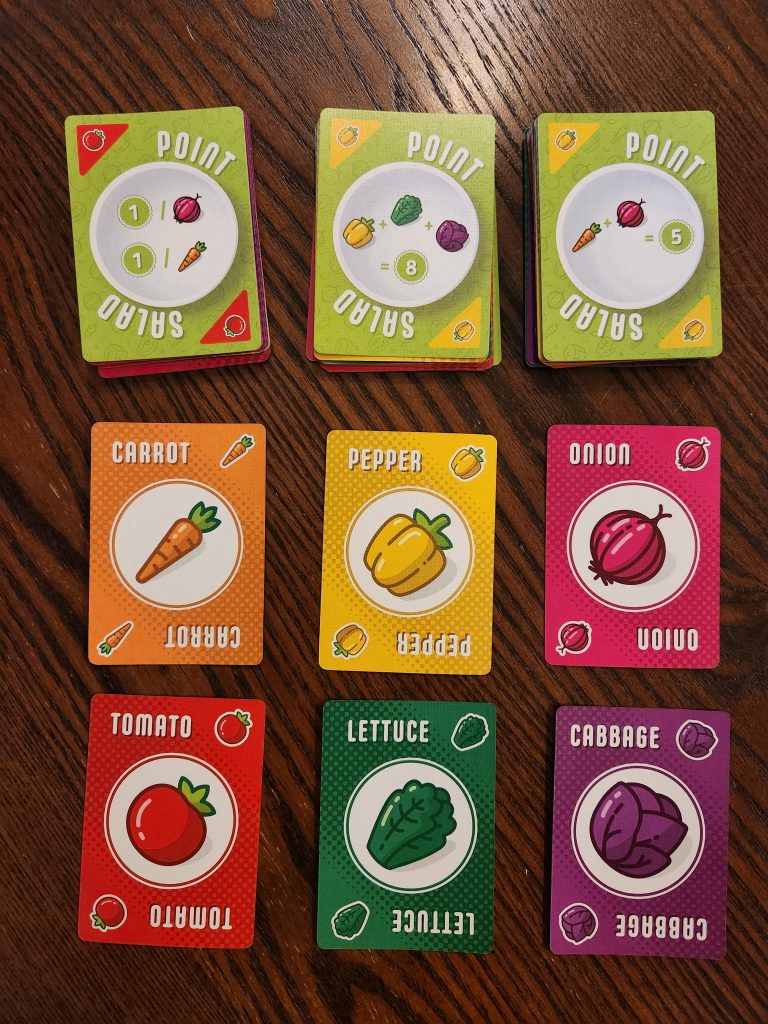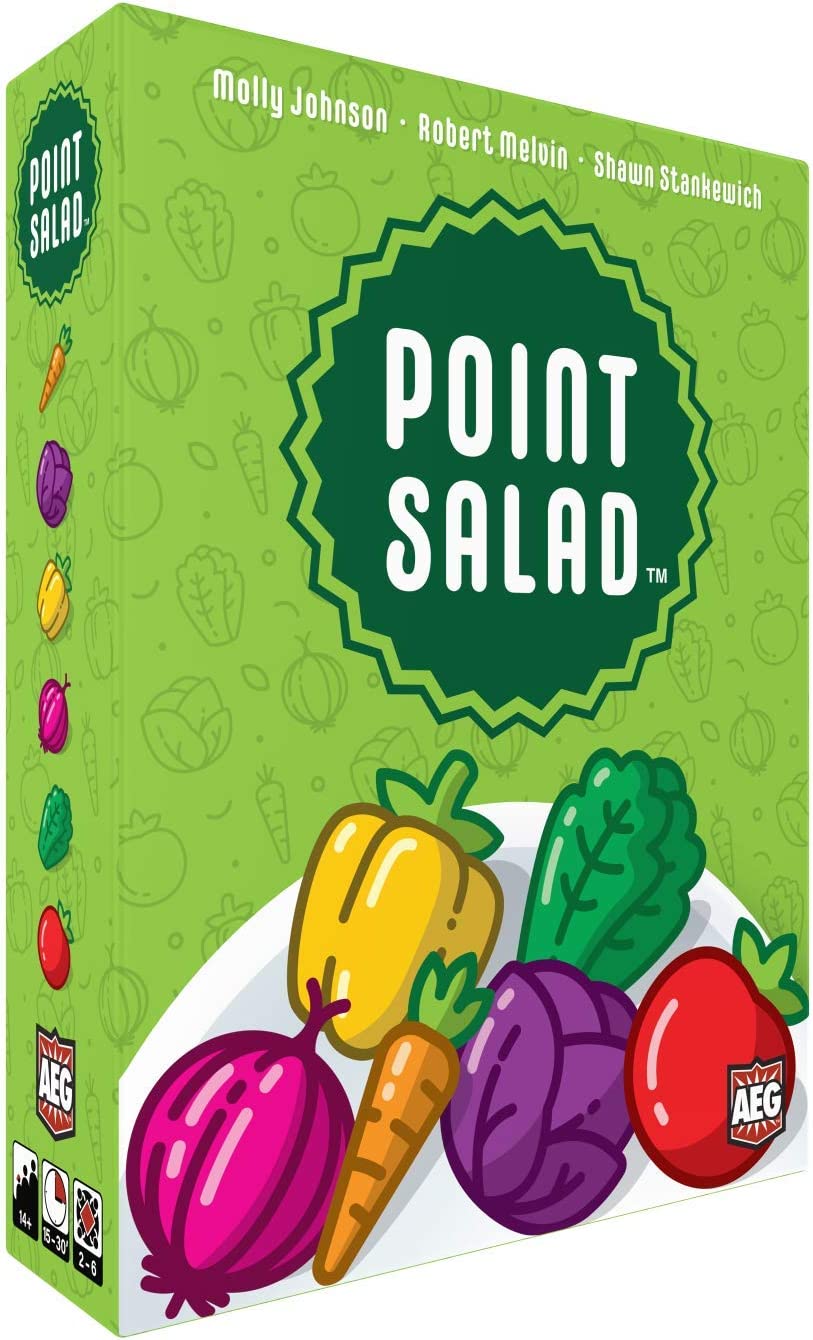Alderac Entertainment Group (AEG) brings to the table a fun, little card-drafting game that’s quick and easy to learn but with a depth of strategy that provides lots of replay value. First let’s break down the basic stats on it.
Number of players: 2 – 6 (The game provides instructions to adjust the number of available veggies/point cards based on the number of players)
Time to play: 15 – 30 minutes per round (although once you get the basics down, you may find yourself playing multiple rounds in quick succession)
Age range: Box says 14+ but my 9-year-old had no trouble understand the rules and playing it (He also loves math though so… mileage may vary).
Game Includes: 108 double-sided cards (one side with a veggie, one side a point card) and the rulebook (short and sweet).
How does it work? This game functions as a round robin, card drafting game where on each turn a player may either draw a point card from one of the three shown point card stacks or draw two veggie cards from the 6 veggie cards in the “veggie market”. As a free action you may also choose to flip a point card over to the veggie card on the reverse side. If a point card is drawn, just flip over the next card in the stack to see what the new point card facing up is. If veggie cards are drawn, they are replenished from the point card stack that they are aligned underneath. The goal of the game is to build your tableau of point cards and veggie cards to achieve the maximum number of points at the end of the game.

In the above example, the point card on the upper left would yield 1 point per onion and 1 point per carrot at the end of the game. Some cards like this one also may have negative points attributed to a veggie as well (ex. -4 to pepper). The upper middle card would give you 8 points for every combination of the three veggies shown you have in your tableau at the end of the game. The upper right point card is similar but offering 5 points for every combination of carrot and onion you have at the end. There are also point counts that offer 7 points for an even number of a veggie or 3 points for an odd number, 10 points for having the most of a veggie by the end or 12 points for having a complete set of all six veggies. You can see with these different ways of gaining points how many different strategies are available to go after.
How does it play? I’ve played quite a few of these card/resource drafting, point tabulating games in my many years as a gamer, and honestly this is one of the easiest to pick up and play I’ve come across. The cards are easily identifiable and self-explanatory (fortunate since the rulebook doesn’t describe how each individual card works, instead giving an example playthrough of how the points would be tabulated), and I like that the game has layers to it with multiple different potential strategies you can employ. You can choose to stick with a limited subset of point cards and accumulate veggies that compliment them, or you can choose to have a smaller number of veggies but acquire lots of point cards that play to those veggie’s strengths (or anywhere in between). The game also has some strategy in terms of how you may choose to thwart your opponent. Since everyone can see everyone else’s cards, it’s not hard to determine what opponent strategies are. So when selecting veggies, you can always choose to select them from a row that contains a point card that may prove beneficial to your enemies (those villainous salad makers!!), so that point card will then be flipped and moved into the veggie market.
I played this with 3 players including my wife and my son and it played really well with 3 people. The gameplay moved quickly and everybody enjoyed themselves quite a lot. By the end of the last game I found myself accumulating onions and peppers, supremely ironic given that those are probably my two least favorite veggies possible in a real salad. My wife ended up winning by 2 points using a very different strategy than I did, but it really could’ve gone either way. I swear I’m not bitter about losing… No more bitter than my disgusting pepper and onion salad anyway.
Overall, I thought this was a great little game that works well within a family setting or as a nice little palate cleanser between more serious games at a tabletop night with friends. Well worth checking out!

